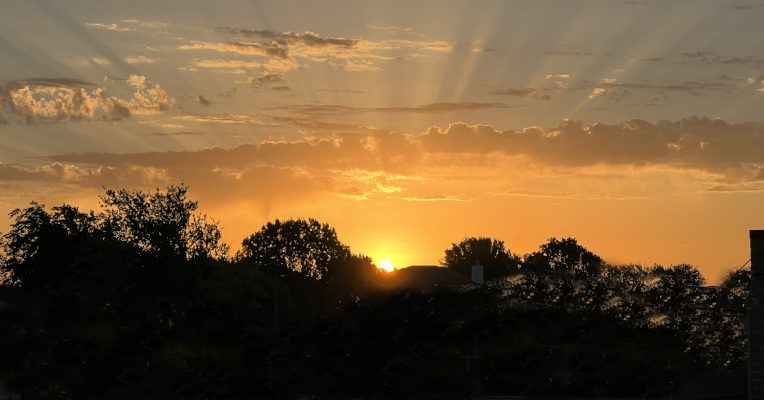Over on the atheist website OnlySky, Dr. Will Gervais has a very good article titled The treasured atheist idea that reason undercuts faith just doesn’t hold up. Dr. Gervais is a Senior Lecturer of psychology at the Centre for Culture and Evolution at Brunel University London – he’s a social scientist and he knows what he’s talking about. The summary of this article says:
In 2012, a paper co-authored by Will Gervais and Ara Norenzayan in the journal Science claimed that confronting religious beliefs with rationality tends to lead people toward atheism. But when more rigorous subsequent studies found zero effect of rationality on religious beliefs, he and Norenzayan publicly disavowed their findings.
The data shows that rationality and atheism have “a weak and fickle correlation.”
To an individual person who left religion, rationality can seem like the most important factor. But in aggregate – looking across the entire population of everyone who was raised in a religious home and who tries to apply rationality in their life – there’s no general trend whereby rationality leads people to atheism. People’s individual narratives aren’t invalid, they just can’t speak to broader trends.
I’ve always considered myself a reasonable and rational person. I was able to leave the religion of my childhood because it wasn’t reasonable – I was told I had to believe things I couldn’t honestly believe. But I never seriously considered atheism.
I’m not going to go deeper into Dr. Gervais’ article. Read it for yourself I you like. It’s not a quick read, but it’s written for a general audience. The comments section is amusing, in that it demonstrates how atheists like to hang onto their preconceived notions as much as everyone else.
Instead, I want to explore why religion in general and Paganism in particular are very reasonable things.
Religion is more than Christianity
When most people – atheists or otherwise – complain about “religion” what they’re really complaining about is Christianity – and conservative Christianity at that. But neither the Southern Baptist Convention nor the Roman Catholic Church are normative of all religions and all religious people.
As a non-Christian, I stay out of the arguments about who is or isn’t a “true Christian.” But as an amateur religious scholar, I will say with confidence that the Episcopal Church, the United Church of Christ, and UU Christians are as much a part of the Christian tradition as the more conservative denominations.
Further, if what you say about “religion” isn’t true of Buddhism, Hinduism, and the world’s remaining indigenous religions, then you aren’t talking about religion – you’re talking about Christianity.
Fundamentalism is a bad thing and I’m happy to ally with atheists and other people of good will to oppose it. But direct your arrows toward the real enemy, not against “religion.”
Religion is more than belief
I say this frequently, but it’s worth repeating until it sinks in. The idea that religion is primarily about what you believe is a modern, Western, Protestant idea. For most people throughout most of history throughout most of the world, religion was and is about what you do, who you are, and whose you are.
Religion is about what you do in your daily practice. It’s about what holy days you observe, and how you observe them. It’s about what you eat and drink and wear – and what you don’t.
Mainly, religion is about what values you live by, and what virtues you prioritize over others. My Paganism isn’t about rules to follow, it’s about virtues to embody. Hospitality and reciprocity are my most important virtues, but honesty, courage, and perseverance are also of great importance.
The English word “religion” comes to us in part from the Latin religare, meaning “to bind together.” Religion is what makes us a community and a family and not just a collection of individuals.
Belief isn’t unimportant. But don’t say “religion” when what you mean is “belief” – religion is much more than belief.
“Reason” does not mean materialism
Reason is the proper attribution of cause and effect. It’s a process that examines available evidence and comes up with a conclusion supported by that evidence. Done right, it acknowledges the confidence we can have in those conclusions. Some conclusions are 100% certain (or very close to it) while others are likely but do not have enough evidence to be absolutely sure.
Many who call religion “unreasonable” are operating from a foundation of materialism – the philosophical assumption that all that exists is matter and the products of its interactions. It assumes that Gods and spirits not only do not exist, they cannot exist.
Materialism is an assumption, not a conclusion based on evidence. Materialists simply dismiss all the evidence for the existence of Gods and spirits (which is largely experiential evidence). Meanwhile, most people around the world examine their experiences and come to the quite reasonable conclusion that they involved Gods and other spirits.
Religious experiences are common – and real
If all religions were to somehow disappear overnight, we would start building new religions almost immediately. Not because people have a need for belief (and certainly not because “they just want to control everybody”) but because people have religious experiences. People experience birth and death and they wonder about it. They have an encounter with something they can’t explain, and “a God spoke to me” is the most reasonable explanation they can come up with.
Too many of us minimize our religious experiences, or we rationalize them away. We don’t want to appear “irrational” in a society that often acts more atheist than Christian, or we’re afraid to talk to our Christian friends about something outside the limits of proper Calvinistic Protestantism.
My Pagan polytheist religion is grounded not in myth but in experience. Our religious experiences are always real. Our interpretations of those experiences may be more accurate or less accurate, more helpful or less helpful. But the experiences themselves are always real.
What does it mean to be part of Nature?
Science tells us – with high confidence – that life on Earth evolved once. All living things are related – some more closely than others. Humans share 98% of our DNA with chimps and bonobos and 50% with bananas (and all other plants). We were not placed on the Earth as some religions claim. We grew out of the Earth.
Given that, what does it mean to say that the Earth is our mother? What does it mean to acknowledge our relations with every other living thing?
What does it mean that we must consume other living things or we will die?
Nature is not “fallen” and bad things don’t happen because of sin. Bad things happen to us because we’re one part of Nature, not the head and not the center. We are no more – and no less – important than every other part.
Deep down, all religions aren’t the same. They have different assumptions, different goals, and different priorities. And some acknowledge the realities of Nature better than others.
What does it mean to honor those who came before us?
None of us got here on our own. We all have parents, grandparents, and many-times-great grandparents, without whom we simply would not be. We go to schools we didn’t build to learn knowledge discovered by those we don’t know. We have received much, and the virtue of reciprocity teaches that as we have received, so should we give.
Certainly, we can – and should – pay it forward to the next generation. But what can we do for those who came before us?
We can remember them. We can call their names, tell their stories, offer them food and drink. That they do not physical consume it is not important. It is the offering that counts.
In remembering them, we learn a little about why we are the way we are.
And we are reminded that some day we will be the ancestors, so let us live so as to be worthy of the honor of those who come after us.
What does it mean to be in relationship with spirits?
Spirits are the essence of a person, the core of their being. I don’t have a spirit, I am a spirit who has a body – for now. Gods are simply the mightiest of spirits.
When I have an experience of what I interpret as the God Cernunnos, I am a human spirit interacting with a divine spirit. As a polytheist, I believe Cernunnos is a real, distinct, individual being with His own sovereignty and agency. But perhaps I’m overstating things. Perhaps Cernunnos is merely a metaphor and personification of Nature, of the wild, of the hunter and the hunted. Either way I can form a relationship with that spirit.
I can speak to Cernunnos and listen for His reply. I can practice good hospitality and make offerings. I can meditate on His values and virtues, embody them in my life, and in doing so become more like Him.
These are good things, regardless of whether my beliefs about Cernunnos are more accurate or less accurate.
And just as I can form and maintain relationships with my Gods, so can I form and maintain relationships with the spirits of land where I live, the spirits of the elements and directions, the spirits of virtues and values, and all the spirits present in our world and in our lives.
If it works it’s good
Fundamentalist Christians make the error of assuming that religion – their religion, anyway – has all the answers to all the questions. Fundamentalist atheists make the error of assuming religion has no answers to any questions.
I say we should use the right tool for the right job.1 What science does, it does very well. We are dishonest if we dismiss the findings of science and believe things that are clearly not true, such as Young Earth Creationism.
But science doesn’t do a very good job of telling us what – if anything – comes after death. It’s completely inadequate to tell us how we should live our lives and what it all means. It can tell us what will likely happen if we promote certain values over others, but it cannot tell us whether or not that’s a good thing.
I cannot tell you that my Pagan and polytheist religion is “true” in some objective way – and neither can anyone from any other religion, if they’re being honest. What I can tell you is that my life has been significantly better since I started this path. It has more meaning and less stress. I no longer fear what may come after death. Perhaps most importantly, I’m part of something bigger than myself.
And that makes my religion a very reasonable thing.
1 Biologist Stephen Jay Gould argued for “non-overlapping magisteria” – the idea that “science and religion each represent different areas of inquiry, fact vs. values” and “the two domains do not overlap.” This is not that. As this post explains, my religion is grounded in science and is informed by science, but it goes beyond the bounds of science. Some of the boundaries of science are artificial, because too many scientists are wedded to materialism. Other boundaries represent things science does not yet know, but someday will discover. And some boundaries represent things we will never know (at least not with certainty) because they’re beyond the capacity of our powerful but finite human brains to comprehend.






















